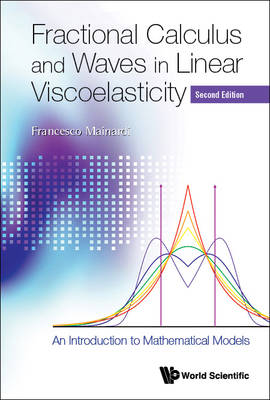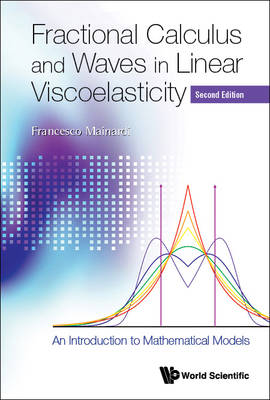
- Afhalen na 1 uur in een winkel met voorraad
- Gratis thuislevering in België vanaf € 30
- Ruim aanbod met 7 miljoen producten
- Afhalen na 1 uur in een winkel met voorraad
- Gratis thuislevering in België vanaf € 30
- Ruim aanbod met 7 miljoen producten
Zoeken
Fractional Calculus and Waves in Linear Viscoelasticity: An Introduction to Mathematical Models (Second Edition)
Francesco Mainardi
Hardcover | Engels
€ 241,45
+ 482 punten
Omschrijving
Fractional Calculus and Waves in Linear Viscoelasticity (Second Edition) is a self-contained treatment of the mathematical theory of linear (uni-axial) viscoelasticity (constitutive equation and waves) with particular regard to models based on fractional calculus. It serves as a general introduction to the above-mentioned areas of mathematical modeling. The explanations in the book are detailed enough to capture the interest of the curious reader, and complete enough to provide the necessary background material needed to delve further into the subject and explore the research literature. In particular the relevant role played by some special functions is pointed out along with their visualization through plots. Graphics are extensively used in the book and a large general bibliography is included at the end.This new edition keeps the structure of the first edition but each chapter has been revised and expanded, and new additions include a novel appendix on complete monotonic and Bernstein functions that are known to play a fundamental role in linear viscoelasticity.This book is suitable for engineers, graduate students and researchers interested in fractional calculus and continuum mechanics.
Specificaties
Betrokkenen
- Auteur(s):
- Uitgeverij:
Inhoud
- Aantal bladzijden:
- 628
- Taal:
- Engels
Eigenschappen
- Productcode (EAN):
- 9781783263981
- Verschijningsdatum:
- 19/09/2022
- Uitvoering:
- Hardcover
- Formaat:
- Genaaid
- Afmetingen:
- 152 mm x 229 mm
- Gewicht:
- 997 g

Alleen bij Standaard Boekhandel
+ 482 punten op je klantenkaart van Standaard Boekhandel
Beoordelingen
We publiceren alleen reviews die voldoen aan de voorwaarden voor reviews. Bekijk onze voorwaarden voor reviews.











